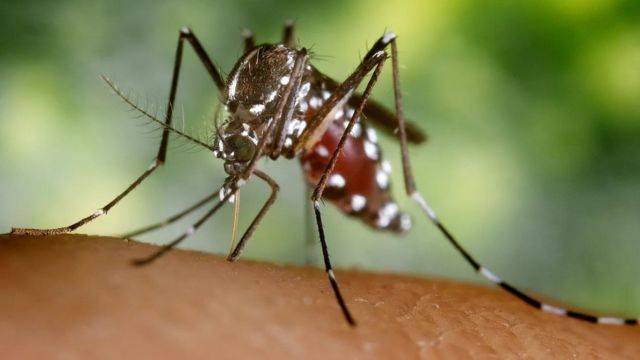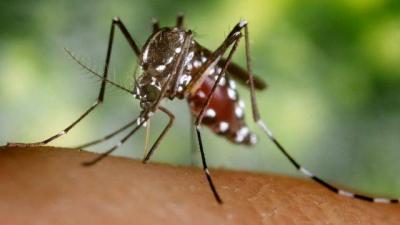Global health officials have raised alarm bells regarding dengue fever, warning that the disease could pose a significant global threat in the coming decade. As officials begin to predict record numbers of dengue infections by the end of the year, the World Health Organization's chief scientist has cautioned that the disease is expected to spread to non-tropical areas of the world, including Europe, North America, and southern regions of Africa.
This trend is attributed to the escalating effects of global warming due to climate change. As the traditional habitats of the dengue-spreading mosquito continue to warm, they will be pushed into new areas previously uninhabited by them, according to Newsweek magazine.
Jeremy Farrar, the chief scientist at the World Health Organization, stated, "We need to talk more proactively about dengue," emphasizing, "We need to prepare countries on how to deal with the additional pressures that will come in the future in many, many major cities."
Data from the U.S. Centers for Disease Control and Prevention (CDC) indicates that about 5% of those infected will have severe cases that can significantly impact blood health and lead to bleeding, while approximately 1% may suffer fatal cases.
#### What is the Disease?
Dengue fever is a viral infection caused by the dengue virus, transmitted to humans through the bites of infected mosquitoes. Prevention and control of dengue depend on combating its vectors. There is no specific treatment for dengue/dengue hemorrhagic fever; however, early detection and access to necessary medical care significantly reduce mortality rates for severe dengue, according to the World Health Organization. The disease is particularly common in Asia and Latin America, causing approximately 20,000 deaths annually.
#### What Are Its Symptoms?
Most individuals infected with dengue exhibit mild symptoms or may show no symptoms at all, with their health improving within a week to two weeks. In rare cases, dengue can be severe and lead to death.
When symptoms do appear, they typically arise 4 to 10 days after infection and persist for 2 to 7 days. Symptoms may include:
- High fever (40 degrees Celsius/104 degrees Fahrenheit)
- Severe headache
- Pain behind the eyes
- Muscle and joint pain
- Nausea
- Vomiting
- Swollen glands
- Skin rash
Individuals infected for the second time are at a higher risk of developing severe dengue.
Severe dengue symptoms often emerge after the fever subsides:
- Severe abdominal pain
- Persistent vomiting
- Rapid breathing
- Bleeding from gums or nose
- Fatigue
- Restlessness
- Presence of blood in vomit or stool
- Intense thirst
- Pale, cool skin
- Weakness
Individuals experiencing these severe symptoms should seek medical attention immediately. Those who have had dengue may feel fatigued for several weeks after recovering from the illness.




